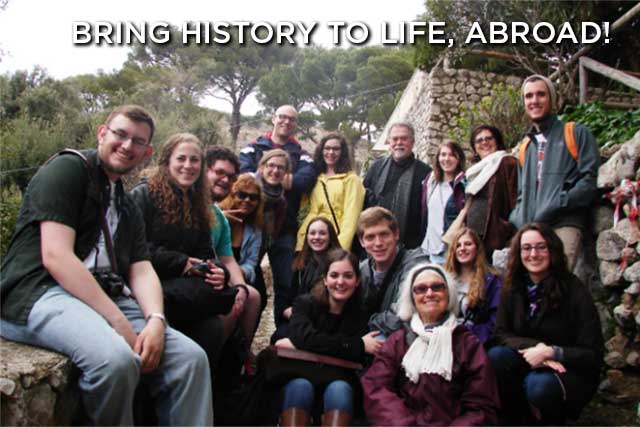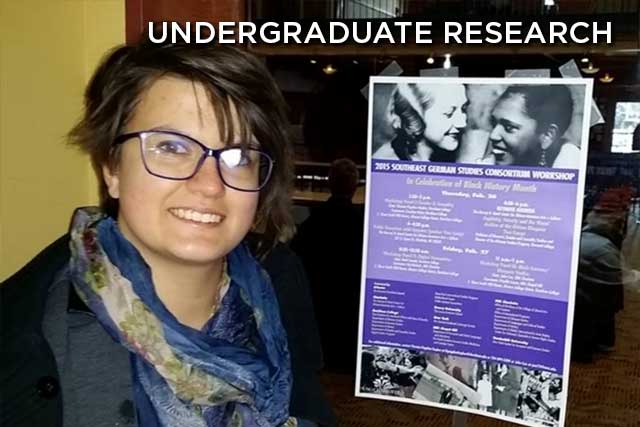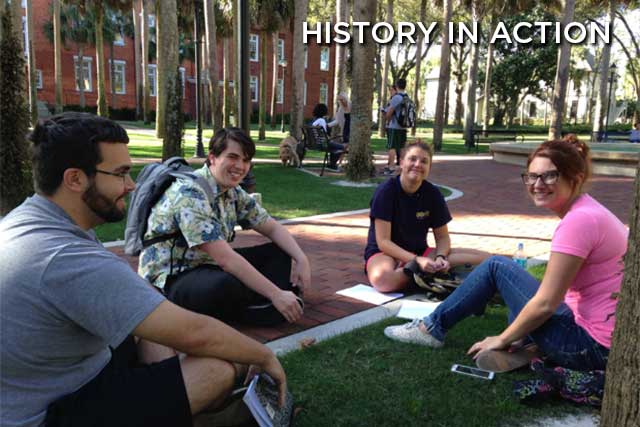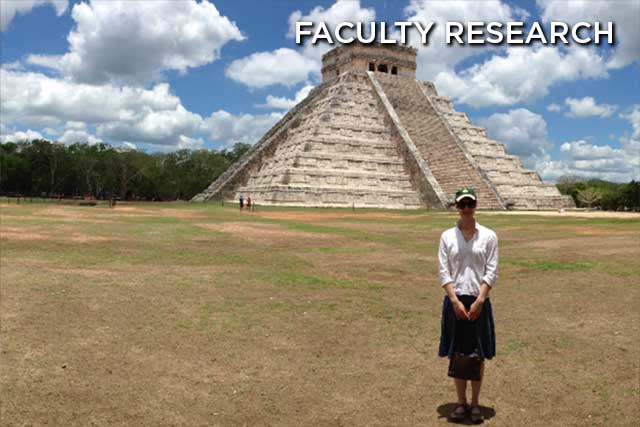Department of History
History lies at the heart of the liberal arts education. By combining the methods of the social sciences with those of the humanities, our major seeks to reconstruct the past in order to better understand the present. Courses study diverse peoples and societies from global and interdisciplinary perspectives, visiting times and places both distant and familiar. Accompany Mohammed on his journey from Mecca to Medina. Follow Harriet Jacobs as she escapes from slavery. Read the German Kaiser’s letters to his cousin, the Russian czar. Why did Rome fall? Why did World War II begin in Asia with the Japanese invasion of China? Did King Arthur really exist? Who planned the Holocaust? Why are there so many violent drug cartels in Mexico?
History students attempt to answer these questions by analyzing a diverse array of primary and secondary sources drawn from politics, economics, and sociology; art, literature, and film; religion, philosophy, and psychology; and the natural sciences and environmental studies. Indeed, our students apply an interdisciplinary lens to develop a breadth of understanding regarding world cultures, societies, and peoples; produce in-depth research projects; and enhance their communication and critical thinking skills through writing and discussion-intensive classes. Given this rigorous, interdisciplinary preparation, it is hardly surprising that many American presidents, Supreme Court justices, business leaders, educators, and journalists have been majors in History. Students who major in History continue to perform near the top of all majors nationally on admissions examinations to law and business schools.
One of the History Department’s strengths lies in the interdisciplinary nature of its curriculum and courses. The Department offers a History Major (through which students graduate with a B.A. in History, B.A. in History with a Public History Concentration, and/or a B.A. in History with a Military and Diplomatic History Concentration) and a History Minor. The Public History Concentration is particularly useful for students who want to work in government, museums, libraries, archives, documentary films, or consulting. As for the Military and Diplomatic History Concentration, it helps students to understand war and diplomacy because students learn to better connect past events with current affairs globally as military and diplomatic history remain highly relevant to the world of today and tomorrow. Besides the traditional emphasis on strategy, tactics, battlefield operations, and diplomatic relations, students taking the Military and Diplomatic History Concentration will also consider themes such as imperialism, ancient and modern state-building, transnational connections, and the impact of socio-cultural and environmental factors on war and diplomacy.
Furthermore, both the History Major and History Minor fit well with many other majors and minors at Stetson. For example, numerous History Department courses support interdisciplinary programs such as: Africana Studies, American Studies, Asian Studies, Gender Studies, International Studies, Jewish Studies, Latin American and Latino Studies, Pre-Law, Social Science, and Stetson’s Program in Russian, East European and Eurasian Studies (SPREES). In fact, students may even double major in History and another subject, the most popular including English, Political Science, International Studies, American Studies, and SPREES. It may also be possible to triple major in History and two other subjects.




